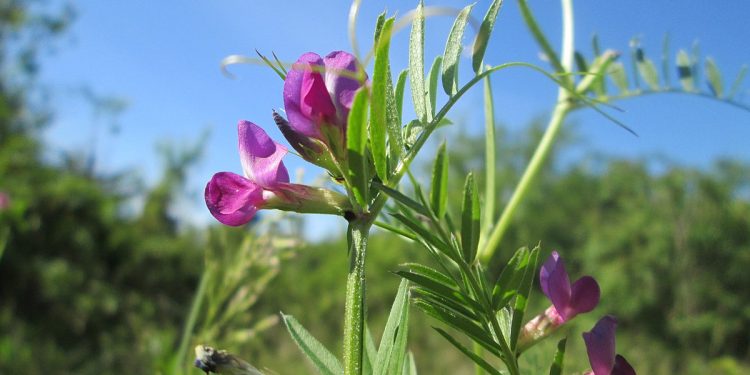#ViciaSativaInAgriculture #SustainableFarming #NitrogenFixation #CoverCrops #SoilHealth #AllelopathicEffects #EnvironmentalImpact #FoodSystem #CropYields
Description: Vicia sativa, commonly known as the Common Vetch, is a versatile legume plant that has been utilized for centuries in agriculture due to its ability to fix nitrogen in the soil. However, recent research has revealed that Vicia sativa could be the key to revolutionizing modern farming practices. This article will explore the potential benefits of using Vicia sativa in agriculture and its potential consequences.
Development: Vicia sativa is a fast-growing, low-maintenance plant that is capable of fixing atmospheric nitrogen in the soil. This means that it is able to take nitrogen from the air and convert it into a form that is usable by other plants. As a result, farmers can use Vicia sativa as a cover crop, reducing the need for synthetic fertilizers and increasing soil health. Additionally, Vicia sativa has been found to have allelopathic effects on weeds, meaning that it can suppress the growth of competing plants.
Consequences: By incorporating Vicia sativa into farming practices, farmers can reduce their environmental impact by using fewer synthetic fertilizers and herbicides. Additionally, Vicia sativa has the potential to improve soil health, increase crop yields, and reduce erosion. The use of Vicia sativa in agriculture could also have positive impacts on the food system, as it could potentially reduce the cost of production and increase the availability of locally grown produce.
In conclusion, Vicia sativa has the potential to revolutionize modern farming practices by reducing the need for synthetic inputs and improving soil health. As a result, it could have positive impacts on both the environment and the food system. Farmers and researchers should continue to explore the potential benefits of using Vicia sativa in agriculture.







